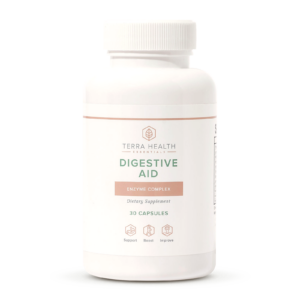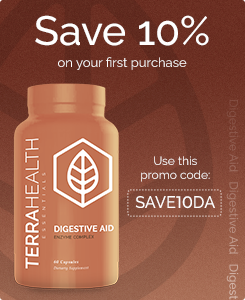Most people are familiar with feeling bloated, especially after a big dinner! The occasional bout of bloating is nothing to worry about. But when bloating becomes a common occurrence it can have a detrimental effect on your overall well-being. Symptoms include gas, stomach pain, frequent belching, and those embarrassing tummy gurgles that always seem to happen when the entire room is quiet. It can also lead to the person feeling extremely lethargic and rundown as a result.
In order to treat your bloating, you need to identify the cause. And there are a few common culprits at play.
Food Intolerances/Diet
 For many people who experience persistent bloating, a food intolerance or sensitivity is setting it off. When you have an intolerance or sensitivity to a food, your bowel may stop emptying properly and excessive gas may be produced leading to that familiar abdominal pain and distention. The two most common problems in this regard are dairy and gluten. Bear in mind that you don’t have to have an official diagnosis of a food intolerance to experience a reaction, and in fact, many people don’t.
For many people who experience persistent bloating, a food intolerance or sensitivity is setting it off. When you have an intolerance or sensitivity to a food, your bowel may stop emptying properly and excessive gas may be produced leading to that familiar abdominal pain and distention. The two most common problems in this regard are dairy and gluten. Bear in mind that you don’t have to have an official diagnosis of a food intolerance to experience a reaction, and in fact, many people don’t.
The best way to figure out what foods you’re sensitive to is to keep a food diary. Use this daily to track when you experience symptoms. This will also help in identifying other foods that may be triggering your bloating, such as short-chain carbohydrates that move through your small intestine without getting properly digested – also known as FODMAPS (Fermentable Oligosaccharides, Disaccharides, Monosaccharides, and Polyol).
Certain Medications
There are certain medications that can cause bloating so it’s worth checking this out. These include proton-pump inhibitors, painkillers, antibiotics, and anti-inflammatory medication. In the case of PPIs, these can be replaced with our Heartburn Relief Kit. This kit is a natural alternative that will not cause bloating. With regards to any other medications you feel are causing your bloating, please do not come off these without discussing the situation with your prescribing doctor.
Constipation
Constipation is an obvious cause of bloating and it can be a symptom of other issues we examine here, but it can also be directly linked to a fiber deficiency in your diet. In the US, the average daily fiber intake is only 10-15g. This is half the recommended daily amount of 30g! You can increase your fiber intake by making sure you have plenty of dark green vegetables, beans, and legumes, and fruits such as strawberries, raspberries, apples, bananas, and oranges.
Irritable Bowel Syndrome (IBS)
 Feeling bloated on a daily basis is an extremely common symptom of IBS. A condition that affects 10-15% of the world’s population. If you’ve been experiencing symptoms such as bloating, abdominal pain, diarrhea/constipation, and cramping, for more than 2-3 months then you may be suffering from IBS. There are two different types of IBS: IBS-C and IBC-D. These differentiated by an association with either constipation or diarrhea. People with IBS usually experience bloating right after meals but can also suffer throughout the day.
Feeling bloated on a daily basis is an extremely common symptom of IBS. A condition that affects 10-15% of the world’s population. If you’ve been experiencing symptoms such as bloating, abdominal pain, diarrhea/constipation, and cramping, for more than 2-3 months then you may be suffering from IBS. There are two different types of IBS: IBS-C and IBC-D. These differentiated by an association with either constipation or diarrhea. People with IBS usually experience bloating right after meals but can also suffer throughout the day.
Low-FODMAP
IBS studies have shown that a diet low in FODMAPs can help to reduce and even eliminate symptoms. In many cases, bloating occurs because your body has a problem with digesting high-FODMAP foods. Such foods include wheat, garlic, onions, and artificial sweeteners. These lead to an increase in gas production which doesn’t affect some people at all but can have a massive effect on others (if you suffer from bloating, you fall into the “others” category!). You can learn more about this in our post “FODMAP for Newbies: A Beginners Guide”.
As noted earlier, dairy can cause a problem with bloating due to sensitivity. In general, dairy is also considered high FODMAP. Sometimes your body doesn’t have enough lactase to digest the lactose in these foods and this causes a gastrointestinal reaction that results in bloating. But you can actually give your gut a helping hand with a Digestive Aid to increase your enzymes and optimize your digestion.
Gut Bacteria Imbalance
When there aren’t enough good bacteria in your gut, the bad bacteria will take over and cause a range of digestive problems including feeling bloated, IBS, diarrhea, constipation, and heartburn. The good bacteria in your gut are extremely important in helping you to digest food, so it’s not surprising that an imbalance can lead to bloating. Adding a daily probiotic to your diet can help with this by rectifying the imbalance.
 Our Digestive Aid Supplement Can Help!
Our Digestive Aid Supplement Can Help!
Once you have identified the cause of your bloating it will be much easier to get it under control. In the meantime, our Digestive Aid supplement will speed up the breakdown of trigger foods to provide you with instant relief. You can start treating your bloating right now with our special 30% discount. Use the code: bloatingsolution30 when placing your order.
Don’t forget to follow us on Facebook where you can contact us anytime with questions or a customized treatment plan!.

